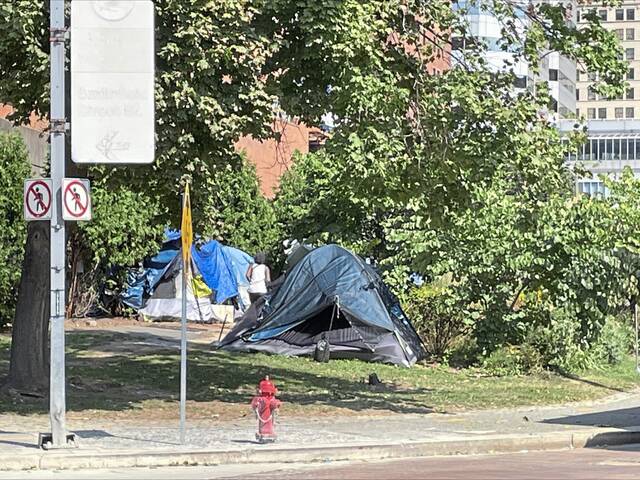https://staging.triblive.com/opinion/joseph-sabino-mistick-blue-city-blues/
Joseph Sabino Mistick: Blue city blues

As political observers search for broader meanings of the presidential election, one thing is certain: There is another election coming just around the corner. In the Pennsylvania 2025 spring primary election, the parties and their voters will select their candidates for local offices — including mayors, council members, township commissioners and supervisors.
These public offices have a direct effect on our daily lives. The quality of life in our communities will significantly depend on the character, competence and policies of those we elect at the local level.
In Pittsburgh, incumbent Mayor Ed Gainey will be up for reelection, and he has a lot of work to do. He won his first term as mayor with the support of self-described “progressives,” and he has been true to their causes.
Gainey has de facto defunded the police department. He has been extraordinarily sympathetic to the homeless encampments in the city and on our riverfront trails, and much less concerned for residents, business owners and property owners. He has tried to shift the burden of financing affordable housing from government to private developers.
But the unrestricted tent cities he has permitted are leading more and more of the general public to avoid Downtown and our riverfront parks, and that will eventually be the end of those public spaces for use by the public. And the affordable housing demands he has made on private developers have made some entire projects unaffordable, resulting in zero new housing units and a zero increase in the city’s tax base.
In Noah Smith’s recent post-election blog “The Blue Cities Must Be Fixed,” he writes that even California voters have “shifted away from so-called ‘progressive’ governance.” The San Francisco mayor’s race was won by a moderate and the board of supervisors is no longer controlled by progressives. Progressive district attorneys lost their jobs in Los Angeles and Oakland.
Smith thinks that these California races predict trends in other blue cities. He calls them “part of a general revolt against progressive governance in big cities. At the local level that’s a good thing, since that governance has proven remarkably poor.
“Many progressives believe that any actions to curb urban disorder — restrictions on sidewalk tents, making people pay for public transit, arresting people for nonviolent crime and so on — represent the exclusion of marginalized people from public life.
“But in fact, permissiveness toward the behaviors that create urban disorder destroy more value than they redistribute,” Smith writes.
We saw hints of a revolt against so-called progressive policies here in 2022, when a progressive district attorney candidate won the Democratic nomination but was defeated in the general election by incumbent Democrat Steve Zappala, who had captured the Republican nomination by write-in.
The good news for Democrats is that the political pendulum is always in motion. Both parties have been declared dead. Both parties have returned to power.
Two years after Bill Clinton became president, the Democratic Party was crushed by the “Republican Revolution” in the 1994 midterm congressional elections. For the first time since 1952, Republicans gained unified control of the House and Senate.
That’s when Clinton started his comeback. He knew that he had to change. He moderated his positions on social issues. He announced that “the era of big government is over.” He blamed the Republican-controlled Congress for doing nothing. And two years later, he won reelection big.
Copyright ©2026— Trib Total Media, LLC (TribLIVE.com)
